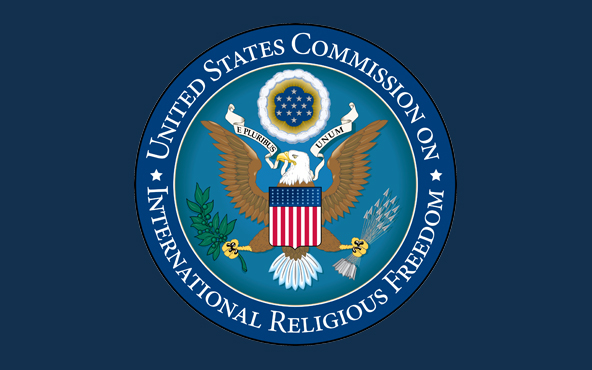The United States Commission on International Religious Freedom (USCIRF) has today released its 2018 Annual Report, categorizing Bahrain as a Tier 2 country “for engaging in or tolerating religious freedom violations that meet at least one of the elements of the ‘systematic, ongoing, egregious’ standard for designation as a ‘country of particular concern,’ or CPC, under the International Religious Freedom Act (IRFA).” This marks the second year in a row that USCIRF has categorized Bahrain as a Tier 2 country. Americans for Democracy & Human Rights in Bahrain (ADHRB) welcomes USCIRF’s continued commitment to independently highlighting religious discrimination in Bahrain. We further support USCIRF’s recommendations to the United States (US) Government, including those to urge Bahrain to implement the Bahrain Independent Commission of Inquiry (BICI) recommendations; apply the Global Magnitsky Human Rights Accountability Act against specific actors who have violated the right to religion; pressure at the highest levels for the release of prisoners of conscience and religious advocates; and call for an end to the targeting of individuals on the basis of religious belief or human rights advocacy. We additionally call on the Government of Bahrain to take all necessary steps to protect religious freedom and to lift restrictions on the right to free belief.
In Bahrain, USCIRF has found that, “During the past year, the overall human rights situation continued to decline.” The government targeted independent political groups, closing the Wa’ad political society, and shut down media outlets like Al Wasat news. USCIRF noted that Al Wasat was sole remaining independent news site in Bahrain, and that the news service “reported on issues affecting the majority Shi’a community.” USCIRF further reported that individual human rights defenders have been targeted by the government. Most notably, Nabeel Rajab was sentenced to two years in prison in July 2017, with an additional five years added in February 2018. The report concurs with the statement of United Nations High Commissioner for Human Rights Zeid Ra’ad Al Hussein that “democratic space in the country has essentially been shut down.”
In comparison to the previous year, USCIRF has found that the targeting of Shia religious leaders was somewhat reduced in 2017. However, the targeting of Shia political leaders continued unabated. The report, in particular, highlighted the imprisonment of Sheikh Isa Qassim under charges of money laundering in relation to the traditional Shia practice of charitable giving, known as khums.
The report emphasized how the Bahraini government has further backtracked in implementation of the BICI recommendations. In particular, USCIRF noted that the restoration of law enforcement powers for the Bahraini National Security Agency (NSA) and the amendment to allow civilians to be tried by military courts would have a negative impact on the Shia population. The NSA has previously used arrest powers to torture Shia protestors, while the use of military courts is considered by human rights groups “an attempt to deny due process to Shia Muslim dissidents and activists charged with unsubstantiated or unfounded terrorist-related crimes.”
USCIRF criticized the government’s justifications for increasingly restrictive practices. Bahraini authorities contend that the practices are necessary due to the risk of Iranian subversion. However, USCIRF noted that the, “Bahraini government sometimes used this pretext to crack down on some Shi’a opposition leaders, clerics, and activists without substantiating subversion or criminal activity; such rhetoric and actions also exacerbated sectarian tensions in the country.”
In regards to US policy, the USCIRF report describes how the US has prioritized geopolitical concerns over the human rights situation in Bahrain. This policy intensified with the change in administration: “In March 2017, the administration announced it planned to drop all human rights conditions on the sale of F-16 fighter jets and other arms to Bahrain, and in September it approved a $3.8 billion arms package.” However, the report also notes that in 2017, “then Secretary Tillerson expressed concern that the Bahraini government ‘continued to question, detain, and arrest Shia clerics, community members, and opposition politicians’ as well as about ‘ongoing discrimination in government employment, education, and the justice system’ against the Shi’a community, which he urged the government to stop.”
“ADHRB welcomes the 2018 USCIRF Annual Report and the decision to keep Bahrain as a Tier 2 country as it fails to address international criticism of its treatment of the Shia population,” said Husain Abdulla, Executive Director of ADHRB. “The reversal of BICI implementations over the NSA and allowing military courts to try civilians demonstrate that the Bahraini government is unwilling to change its deplorable behavior. We urge the US to take USCIRF’s recommendations very seriously, and to make human rights and religious freedom concerns more central to US policy toward Bahrain.”





